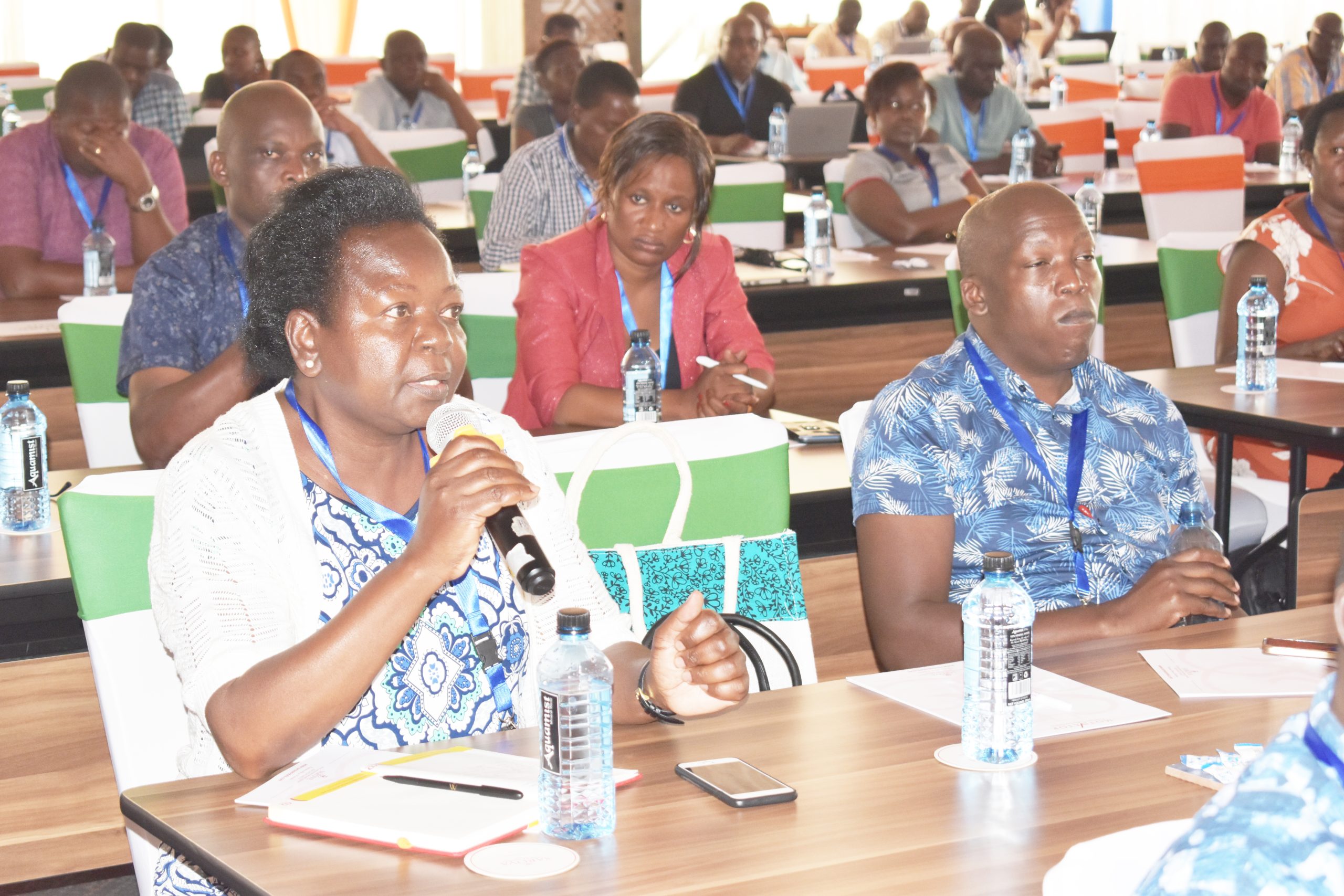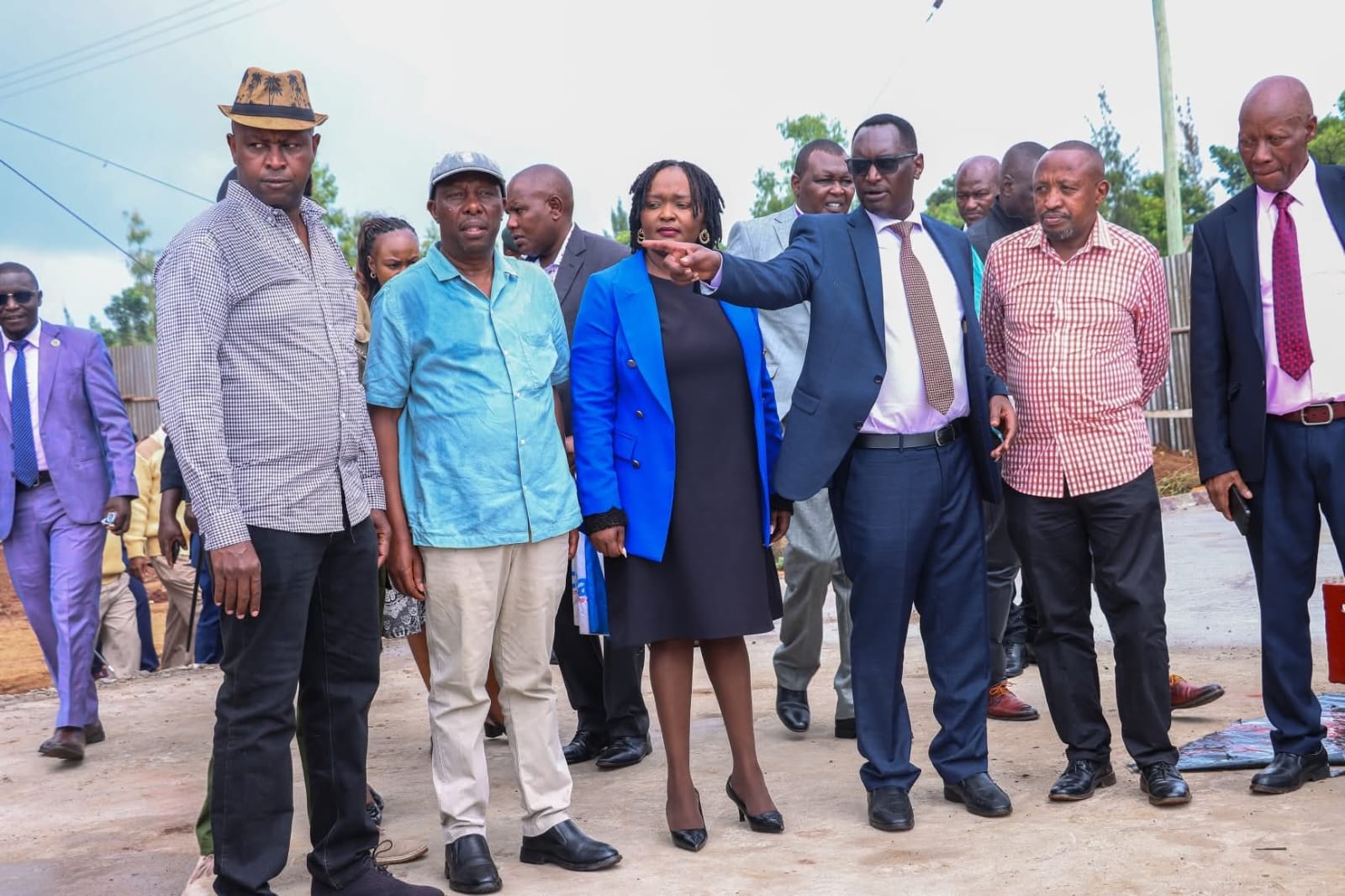Stakeholders in the cooperative movement have decided that the Co-operative Movement Stakeholders’ Conference will now be an annual event, which will be held every year in the month of June.
This was agreed during the first conference held at Sarova Whitesands Beach Resort in Mombasa themed ‘Co-operative Business Model for Socio-Economic Transformation’.
Itattracted more than 180 delegates from different cooperative organizations countrywide.
The inaugural conference, planned and organized by the Co-operative University of Kenya (CUK) in collaboration with the Ministry of Co-operatives and Micro, Small and Medium-sized Enterprises (MSMEs) Development, aimed at facilitating a multifaceted consultative forum of national discourse to chart Kenya’s cooperative-driven and community-led inclusive, transformative and sustainable development agenda.
It was also meant to provide a platform for sharing best practices and striking mutual beneficial partnerships, collaborations and networks among policymakers, development partners, private and public sectors, academia, practitioners, professionals and researchers in areas where the cooperative business model has assimilated and where lie opportunities for growth of the model.
The conference aims that in future, it will bring together heads of key international agencies and organizations, including International Co-operative Alliance (ICA), International Labour Organizations (ILO), global communities, World Council of Credit Unions (WOCCU), and the African Confederation of Co-operative Savings and Credit Association (ACCOSCA), among others.
Cabinet Secretary (CS) in the ministry Simon Chelugui, while opening the conference, observed that time was ripe to reposition the country through the cooperative business model.
Part of this include financial inclusion, digital empowerment, savings, improved governance and leadership to attain public confidence, empowerment of housing cooperatives, empowerment of farmers to produce enough food, and utilization of available cooperative structures for resource mobilization.
He also underscored the great achievements that the cooperative movement had garnered over the years since the pre-colonial days, including mobilizing savings to a tune of over Ksh800 billion, notwithstanding the challenges affecting the sector in the areas of governance, leadership, management, corruption, technological issues (cybercrime, resource under-utilization, cartels and brokers), and production issues.
To effectively harness the cooperative business model for national socio-economic inclusive and sustainable growth, the conference adopted the National Co-operative Transformation Strategy as a matter of urgency, a responsibility that was given to CUK, SDC and the presidency through the Economic Transformation Office.
Recognizing that the government is taking bold steps to strengthen the cooperative sector as an anchor and key enabler in the Bottom-up Economic Transformation Agenda (BETA), the conference resolved to mobilize cooperatives to continuously support the government’s agenda in the priority areas of value chains; for instance housing, coffee, dairy, tea, miraa, livestock and leather, cotton, blue economy, among others, from production to consumption; a responsibility that was given to the SDC and CUK.
CUK boost
Further, in recognizing the great role that CUK plays in cooperative development, the conference resolved that the government should equip the university with proportionate infrastructure since it is the only centre of excellence for knowledge, research, education and information for the cooperative movement.
The National Treasury was given the responsibility of implementing this resolution in the 2023/2024 Financial Year.
Chelugui applauded the close working relationship between his ministry and CUK, which he acknowledged as the intellectual arm of the cooperative movement.
The CUK was to reciprocate by developing a National Standardized (universal) Cooperative Training Manual by June 2024, which will be a trainer of trainers (ToT) facilitative manual for cooperative officers at the county level.
It was further given the responsibility of continuously aligning its strategies and programmes with the government priorities so that they can attract and maintain national recognition due to its importance and critical role in the movement.
Recognizing that Science, Technology, and Innovation (STI) has direct bearing on cooperative development, the conference resolved that CUK must embrace STIs and establish Innovation and Incubation hub(s) for the cooperative movement by June 2024, and to further develop a Postgraduate Diploma in Cooperatives for graduate specialists, and a Diploma in coffee and tea value chain by September 2024.
By Roy Hezron
Get more stories from our website: Sacco Review. For comments and clarifications, write to :Saccoreview@shrendpublishers.co.ke
Kindly follow us via our social media pages on Facebook: Sacco Review Newspaper for timely updates



